- This event has passed.
World Homeless Day
October 10, 2024 @ 11:00 am – 11:30 am
The last time a global survey of homelessness was attempted by the United Nations (in 2005), statistics showed that homelessness is on the rise. In fact, it was estimated that more than 100 million people worldwide are homeless, and at least 1.5 billion people lacked housing that was adequate.
It is with this in mind that World Homeless Day is observed.
How to Observe World Homeless Day
Unfortunately, data shows that homelessness has been steadily rising over the past ten years or so. Learn about ways to observe this day that might make a difference in the life of a homeless person:
Raise Awareness for Homelessness Locally
On this day, many people can honor the day by helping to raise awareness for the homeless in your own community. Grassroots campaigns and fundraisers work at the local level, while taking advantage of the increased publicity and solidarity that a global platform has the ability to provide.
Use this Day as an opportunity to educate people about the homeless in your local area, the infrastructure that already exists to help them and how it can be improved.
Learn the Risk Factors of Homelessness
Homelessness is a particular problem in Western countries and is one of the most pressing social issues today. Some of the problems with homelessness have to do with increased housing costs, particularly in very high cost of living countries in Europe, such as England, Ireland and Belgium.
But in most places, there exist risk factors that keep people from being able to sustain adequate housing on a long-term basis. Knowing this can be helpful for those who have a relationship with someone who might be at risk. Some of these risk factors for chronic homelessness include:
· Physical Health. When people have a severe illness, whether chronic or unexpected, they often have trouble paying their medical bills which compound and make it difficult for them to have the finances to pay for housing. This is likely less of a factor in countries where the cost of medical care is included as part of the social well-being of the general public.
· Mental Health. Various problems with mental health, such as schizophrenia, bipolar disorder, or anxiety disorder, can limit a person’s ability to hold down a job, be responsible for housing and manage relationships related to housing.
· Substance Use and Addictions. The use of drugs, whether illicit, prescription or alcohol-related, can be predictors for homelessness because this affects financial responsibility, personal care, and relationships.
· Prior Homelessness or Frequent Transitions. Those who have been without housing in the past (perhaps as children) or who have experienced frequent moves and housing transitions are considered vulnerable as they have less connection and stability.
Make a Donation to a Charity for Vulnerable People
Sometimes, getting involved means helping meet an immediate need that will reduce or prevent the risk in certain individuals. Although people’s hearts might be tugged on by someone begging for money by holding up a cardboard sign on the street, in most cases it is better to give to those charities who can use the finances more effectively. These organizations are filled with professionals who are dedicated to trying to put an end to this social problem of homelessness.
KRCC operates 2 shelters in the area. East KY House of Hope in Floyd https://www.krccnet.com/east-ky-house-of-hope/ and Haven House Homeless Shelter in Jackson, KY https://www.krccnet.com/adult-services/haven-house/
